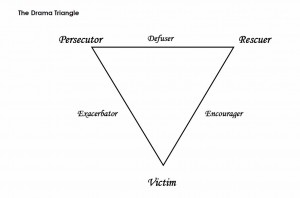Deep Spring Center
Thought for Today
Get back to your daily practice. Make a commitment that you’re going to sit daily. One doesn’t just sit when one feels spiritual. The sitting, when it’s tough, when the body aches, when one is feeling a lot of uncomfortable emotions, the mind is churning, can be a much more useful sitting than just sitting and moving into a blissful space. You’re not sitting to escape, you’re sitting to be present with things as they are, which is sometimes pleasant, sometimes unpleasant.
“I just feel stuck.” If I had a nickel for every time I have heard those words—or every time I have felt that feeling—I would be independently wealthy! The sense of being bound by a habit pattern is not pleasant, but it can be soulfully quite productive, especially as you become more and more aware.
In her audio program, “Getting Unstuck: Breaking Your Habitual Patterns and Encountering Naked Reality,” ordained nun, author, and teacher in the Shambhala Buddhist lineage, Pema Chödrön speaks well about an unconscious sense that arises in us, brings us discomfort, and causes us to react by escaping the discomfort, often with harmful habits.
One point Chödrön addresses is how this pattern of guilt driving behavior is predominantly Western. She tells of a student asking an Eastern master if he had never done anything for which he felt guilt. The teacher shared of having told an elder student not to pursue a specific physical practice because he was too old. That person committed suicide (believing that the way to get a younger body), and the teacher felt great guilt about the death.
The teacher was then asked how he was able to get over the guilt, to which he replied: “I did not get over it; the guilt is still right here. I just don’t allow it to pull me from my path.”
One of the principle dynamics that governs habit patterns, and keeps people stuck in a nonproductive feeling, is the drama triangle, developed by Dr. Steve Karpman in 1968 (“Fairy Tales and Script Drama Analysis.” Transactional Analysis Bulletin, 7:26, 39-43). This illustration is from our manual: Healing with Language: Your Key to Effective Mind-Body Communication.

Recently I saw a quotation by Lionel Hampton, American jazz musician. His sentiment makes great sense: “Gratitude is when memory is stored in the heart and not in the mind.” The mind has a way of churning over and over. It is common for the mind to keep busy looking for someone to blame. Even the more subtle roles we identified as part of the energy of the drama triangle can keep us stuck in blame/shame.
Christian theology is rife with blame/shame. Just do an internet search for Adam and Eve and original sin. You will find articles proving Eve is to blame because she was the first to eat of the fruit of the tree of the knowledge of good and bad. Other writers read the story and conclude that Adam is to blame because he was supposed to the leader of the home and should have protected Eve from the wrongdoing. It is amazing how challenging it is to just “stay with” the uncomfortable feelings that come up in our lives.
In Buddhism, getting hooked (stuck) is called shenpa. This is that emotional reaction that happens so fast you just want to run. Whatever we run to can become the habit. It is easy to point fingers at those who drink or use illegal drugs, but some of us sleep or eat or pray. Obviously some of those hooks have greater risk, but all are a symptom that we have not yet learned how to witness these emotions as energy flows in our body and deal with ourselves with compassion.
It is not always easy to respond to others skillfully, but it takes even greater awareness to have compassion for yourself when you are being hooked. Lawrence Grecco has some helpful tips in “Know Your Inner Hooker: 5 Ways to Work with Shenpa.”
1. Know what hooks you.
2. Know what you tend to do once you are hooked.
3. Practice sitting with uneasiness.
4. Abstain from the habitual response.
5. Sit through the shenpa storm and wait for the sky to clear.
Some of us easily get hooked by criticism. Others not so much. Whatever has hooked you in the past, the real wisdom and grace available to us now allows us to notice what is happening and not have to go into story about it. Sitting with the pure emotion without reacting in habitual ways gets us off the hook without putting someone else on it.
